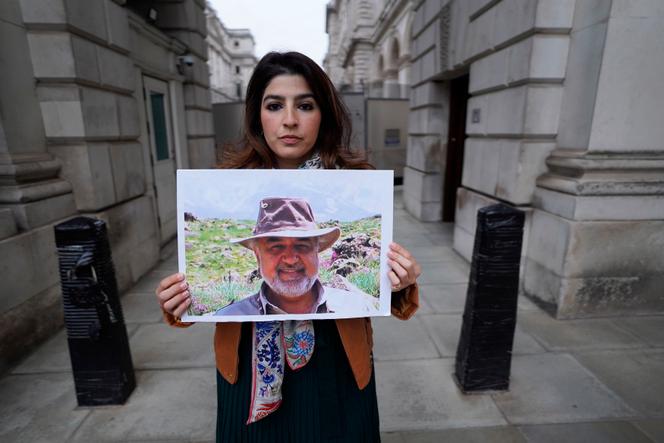


After two years of negotiations, Tehran and Washington have reached an agreement for the release of five Iranian-Americans detained in Iran. On Thursday, August 10, the White House confirmed that the five prisoners had left the notorious Evin prison, in the north of Tehran, and had been placed under house arrest with a view to their release.
They are Siamak Namazi, Emad Sharghi, Morad Tahbaz and two other Iranian-Americans whose identities have not yet been disclosed. The information was confirmed by the Foreign Ministry in Tehran. The previous day, Iranian diplomatic chief Hossein Amir Abdollahian had acknowledged that negotiations were being conducted with Washington, via other countries, notably the Sultanate of Oman.
According to the New York Times, the five Iranian-American detainees will finally be allowed to leave Iran in exchange for Tehran's recovery of around $6 billion (€5.5 billion) in Iranian oil revenues, blocked in South Korea as a result of US sanctions against the Islamic Republic. The agreement stipulates that these financial assets are to be used solely for humanitarian purposes. In return, Washington will also release an as yet unknown number of Iranians detained in the US for circumventing the country's sanctions.
The official IRNA news agency reported the unfreezing of $10 billion (€9.1 billion), corresponding to Iranian assets blocked in South Korea, and also in Iraq. The same source said that the Iranian funds in South Korea would be transferred to a bank in Switzerland, where they would be exchanged for euros, before being sent to Qatar. Only at the end of this process, which could take several weeks, will Iran allow the five Iranian-American detainees to leave the country.
On August 10, US State Department officials met with the five detainees in Tehran, confirming their release from the Evin prison. "My belief is that this is the beginning of the end of their nightmare and the nightmare their families have gone through," said Secretary of State Antony Blinken at a press conference in Washington. The agreement for their release comes as the US and Iran remain unable, for the time being, to reach an agreement to salvage the Iran nuclear deal that former US president Donald Trump unilaterally abandoned in 2018.
The West and human rights organizations regularly accuse Iran of arresting foreign citizens or Iranians holding other nationalities (Tehran does not recognize dual nationality for its citizens) and using them as bargaining chips in its negotiations with other countries. In May, Iran released Belgian aid worker Olivier Vandecasteele, arrested in February 2022. He was exchanged in Oman by Brussels for Assadolah Assadi, an Iranian diplomat sentenced to 20 years imprisonment in Belgium for organizing an attack, eventually aborted, against the Iranian opposition in a northeastern Paris suburb in June 2018. The Iranian authorities rejected these accusations and stressed the independence of the Iranian judiciary.
You have 30.55% of this article left to read. The rest is for subscribers only.
